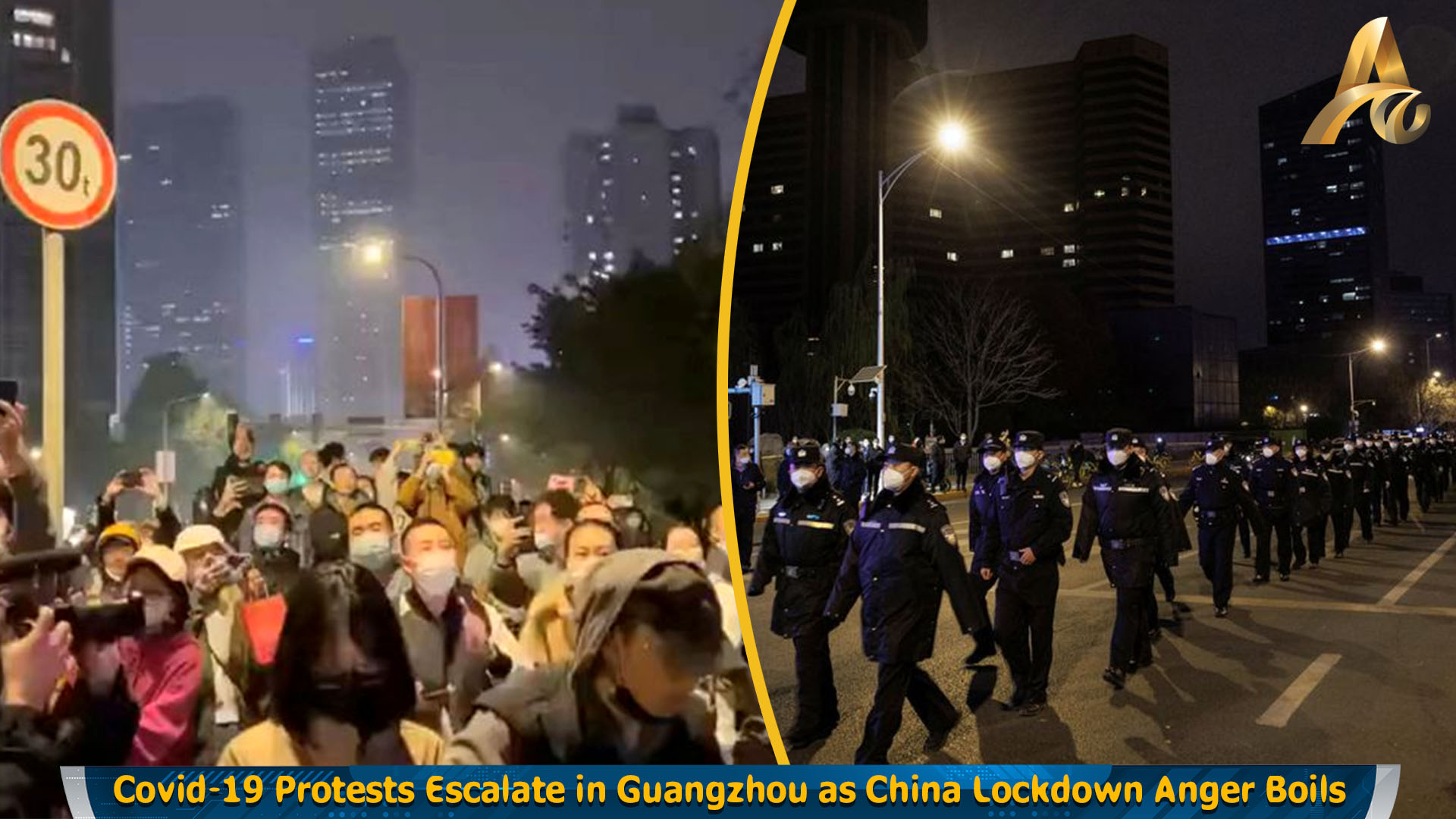GUANGZHOU: People in China's southern manufacturing hub of Guangzhou clashed with white hazmat-suited riot police on Tuesday night, videos on social media showed, as frustration with stringent Covid-19 rules three years into the pandemic boiled over.
The clashes marked an escalation from protests in the commercial hub of Shanghai, capital Beijing and other cities over the weekend in mainland China's biggest wave of civil disobedience since President Xi Jinping took power a decade ago.
In one video circulating on Twitter, dozens of riot police in all-white pandemic gear, holding shields over their heads, are seen advancing in formation over what appeared to be torn down lockdown barriers as objects fly at them.
Police are later seen escorting a row of people in handcuffs to an unknown location.
A separate video shows people throwing hard objects at the police, while a third shows a tear gas canister landing in the middle of a small crowd on a narrow street, with people then running in all directions to escape the smoke.
Reuters verified that the videos were filmed in Guangzhou's Haizhu district, but could not determine the exact sequence of events and what sparked the clashes.
Social media posts said the clashes took place on Tuesday night and were caused by a dispute over lockdown curbs.
The government of Guangzhou, a city hard-hit in the latest wave of infections, did not immediately respond to a request for comment.
Home to many rural migrant factory workers, Guangzhou is a sprawling port city north of Hong Kong in Guangdong province, where officials announced late on Tuesday they would allow close contacts of Covid cases to quarantine at home rather than being forced to go to makeshift shelters.
The move broke with the usual practice under China's zero-Covid policy.
In Zhengzhou, the site of a vast Foxconn factory making Apple iPhones that has been the scene of worker unrest over Covid, officials announced the "orderly" resumption of businesses, including supermarkets, gyms and restaurants.
However, they also then published a long list of buildings that were high-risk and would remain under lockdown.
Hours before those announcements, national health officials said on Tuesday that China would respond to "urgent concerns" raised by the public and that Covid rules should be implemented more flexibly, according to each region's specific conditions.
But while the easing of the measures, which comes as China posts daily records in Covid cases, appears to be an attempt to appease the population at large, authorities have also begun to seek out those who have been at recent protests.
"One of my friends who posted a video of people calling for Xi to step down was taken away by police last night," a Beijing resident who asked to remain anonymous told Reuters.
"Other friends who posted similar videos had to go to the police station. Most were kept for a few hours and asked to sign a paper promising they won’t do that again. And most have now deleted their posts."
'HOSTILE FORCES'
In a statement that did not refer to the protests, the Communist Party's top body in charge of law enforcement agencies said late on Tuesday that China will resolutely crack down on "the infiltration and sabotage activities of hostile forces".
The Central Political and Legal Affairs Commission also said "illegal and criminal acts that disrupt social order" would not be tolerated.
China's foreign ministry has said rights and freedoms must be exercised within the framework of the law.
White House national security spokesperson John Kirby said on Tuesday that protesters in China should not be physically harmed or intimidated.
While infections and death numbers are low by global standards, Covid has spread despite China largely isolating itself from the world and demanding significant sacrifices from its population to comply with frequent testing and prolonged isolation.
The lockdowns have exacerbated one of the sharpest slowdowns in growth China has suffered in decades, disrupting global supply chains and roiling financial markets.
The head of the International Monetary Fund Kristalina Georgieva flagged a possible downgrade in the fund's economic growth forecasts for China.


SOURCE: Reuters






















